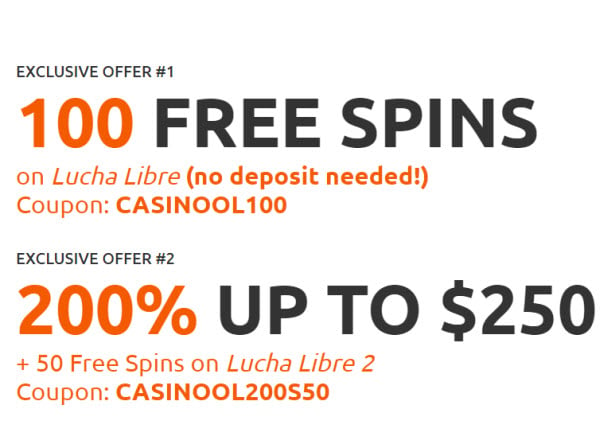What Does it Mean to Say Youre Powerless Over Drugs and Alcohol?
The Alcoholics Anonymous (AA) Big Book says “powerless over alcohol” as its first principle. AA members believe they cannot control their drinking without the help of a higher power. The first step to recovery, according to Alcoholics Anonymous (AA), is to admit that you are powerless over alcohol and that your life has become unmanageable. This crucial acknowledgment is often the hardest for many people, as those who struggle with alcoholism frequently find themselves in denial about the severity of their problem.
No Man Is An Island: The Importance of Accepting Help From Others
They may not be drinking anymore, but the thoughts, emotions, and behaviors that got them into alcoholism in the first place haven’t changed. Getting sober this way sets you up for relapse because the deeper causes and reasons for your addiction aren’t being addressed, they’re just being avoided. Recovery is a multifaceted approach to addressing addiction that requires serious life reflection and commitment to change. This https://sober-house.org/what-are-the-effects-risks-of-ecstacy-on-the-body/ step is not saying you are powerless over your actions, decisions, or relationships with others; only over your addiction to alcohol or drugs. It is not an excuse to continue in a destructive cycle because there’s nothing you can do about it. By recognizing the benefits of embracing powerlessness in sobriety, we can shift our perspective and approach our recovery journey with a newfound sense of openness and receptivity.
What is AA?
Powerlessness is a normal and human response to stress, but it can also be a sign of depression or anxiety. AA meetings are helpful for many individuals in recovery from alcohol addiction. These meetings may even be part of the programming at inpatient rehab or outpatient programs you attend. Services offered by your treatment team can work alongside the 12 Steps to help you find your path to recovery. Further, by accepting that there are things that we cannot control, including our drug use, we open ourselves up to receiving the help of others. Coming to this understanding will make you much more receptive to looking to sources outside yourself for recovery, such as your sponsor, your fellow group members, or your Higher Power.
Seeking Support from Others
Admitting to being powerless over alcohol will help a person to recognize that he or she does not have control over their drinking. Denying there is a problem only allows the person to continue their destructive behavior. Providing these examples of powerlessness over alcohol can help an individual to start recovery. It’s so easy to blame other people for our problems, but recovery requires us to take personal responsibility, and that’s exactly what Alcoholics Anonymous teaches. It’s your responsibility to stay engaged in your recovery and work with your sponsor.
Prescription Drug Addiction Facts and Statistics
Accepting this powerlessness is a crucial step in recovery, as it allows individuals to seek the necessary help and support to regain control over their lives and work towards sobriety. Individuals who are suffering from alcoholism often find themselves prioritizing drinking over important responsibilities and activities, and their lives can become consumed by the need to drink. The emotional and psychological toll includes feelings of shame, guilt, and helplessness, which can worsen existing mental health issues like depression and anxiety. Our mission is to provide the most cost-effective, accessible treatment for substance use disorder to as many patients as possible. We are committed to an integrated quality of care that is comprehensive, person-centered, and recovery-focused. We strive to exceed patient and community expectations in every life we touch.
- Powerlessness in sobriety refers to the recognition that individuals struggling with addiction do not have complete control over their substance use or the consequences that arise from it.
- The phrasing can be confusing or dated, and when people first encounter Step 1, they’re likely to pause at the idea of being powerless while others scratch their heads at “life has become unmanageable.”
- Ms. Honer, who has been in long-term recovery for over 40 years, has worked in the treatment field for over 33 years.
- It involves acknowledging and accepting that addiction is a complex force that cannot be controlled or managed through sheer willpower.
- Acknowledging that, for many, feelings of ambivalence are a part of the process.
- The concept of powerlessness can seem quite foreign, especially to those from countries like America whose culture idolizes independence and raising one’s self by their bootstraps.
While admitting powerlessness over a substance may seem at odds with efforts to hold addicts responsible for their behaviors, the opposite is true. By accepting that you’re powerless over alcohol, drugs or addictive behavior, you’ve come to terms with your personal limitations. In conclusion, embracing powerlessness in sobriety harbor house sober living review is a vital aspect of the recovery journey. It involves acknowledging and accepting that addiction is a complex force that cannot be controlled or managed through sheer willpower. By recognizing powerlessness, individuals can let go of old patterns, seek support from others, and develop healthier coping mechanisms.
Recovery is a journey that can seem intimidating if you’re just beginning, but in AA, you just have to take it one step at a time. Asking for help seems like such a simple concept, but admitting powerlessness is a humbling, courageous act. In recovery, we learn that it takes far more strength to surrender and admit powerlessness than it does to try to control addiction by ourselves. By understanding the benefits of embracing powerlessness and incorporating tools and practices into their recovery journey, individuals can navigate the challenges of sobriety with greater ease and clarity.
The group has a lot of information online about its history and philosophy. The reluctance is compounded by the fact that alcohol is a socially accepted substance, making it difficult for many to recognize the severity of their addiction. Furthermore, access to treatment can be hindered by socioeconomic factors, lack of healthcare resources, or insufficient support systems. Drug & alcohol withdrawal can be agonizing — even life threatening.
When you start your path in recovery, you’re likely to find that your life is a bit unmanageable. Please don’t feel the need to surrender when you begin; this is an ongoing process, and it might take time to cope with everything https://rehabliving.net/ketamine-everything-you-need-to-know/ that’s happening. So you understand the benefits of Step One and of admitting powerlessness, but the next question then is why is such emphasis placed on being reliant on others to get yourself out of addiction?
Addressed those challenges by explaining that every member was welcome to interpret God to mean whatever higher power they chose to believe in while working the steps. Philosopher William James and Carl Jung a Swiss psychiatrist also played a part in supporting the concepts of a spiritual (not necessarily religious) experience as part of recovery. Are you ready to achieve liberation and strength over your destructive drinking habits? If so, you must admit defeat, become powerless, and embrace Alcoholics Anonymous (AA) guiding principles, starting with Step 1 of AA. According to the National Institute on Alcohol Abuse and Alcoholism, alcohol, similar to other drugs, has a potent impact on the brain by generating pleasurable sensations and dulling negative emotions.
Step One is just asking a person to acknowledge that they have the disease of addiction, and life is harder because of it. Some people believe AA is intricately tied to religion by seeking a “higher power.” Rather, AA members are encouraged to understand they’re powerless in changing their addictive behavior. In fact, many members don’t perceive a need for a “higher power.” Instead of seeking spirituality, which helps in recovery, they seek assistance from the AA fellowship. Read on to learn more about the concept of powerlessness, what it really means, and why it’s so critical in the recovery journey. For many individuals in recovery, embracing a higher power or spiritual connection is a significant tool in surrendering to powerlessness. This can involve finding solace in a religious faith, connecting with nature, or exploring spiritual practices that resonate with personal beliefs.
The old belief that a person must fully accept themselves as powerless for the program to work has been challenged and tested. What research has discovered is that acceptance of this step should be centered on the person and what they believe is problematic. Acknowledging that, for many, feelings of ambivalence are a part of the process. That anyone approaching the need to change can benefit from the 12 steps regardless of the stage of acceptance that they are in. A person no longer must hit “rock bottom” to be able to engage in recovery. They can step out of the process at any stage by simply acknowledging they need help, even when they don’t exactly see all the places that this help is needed.






